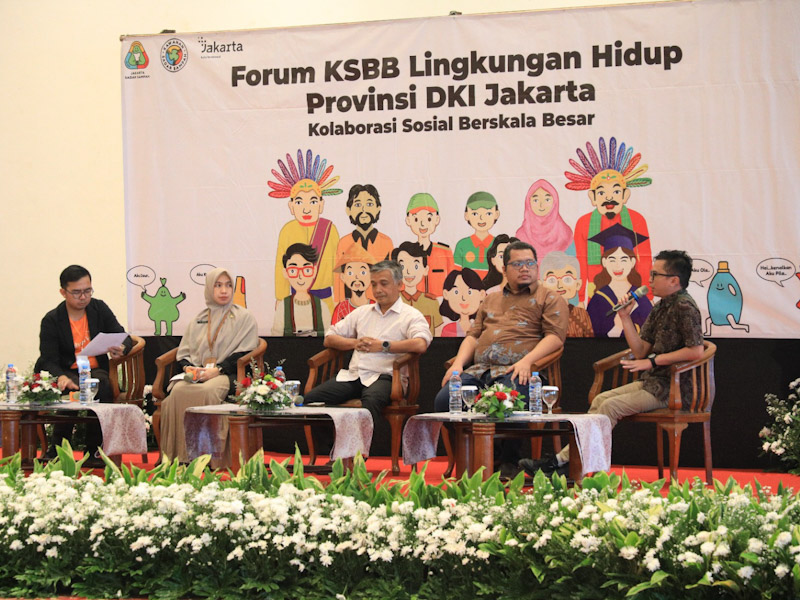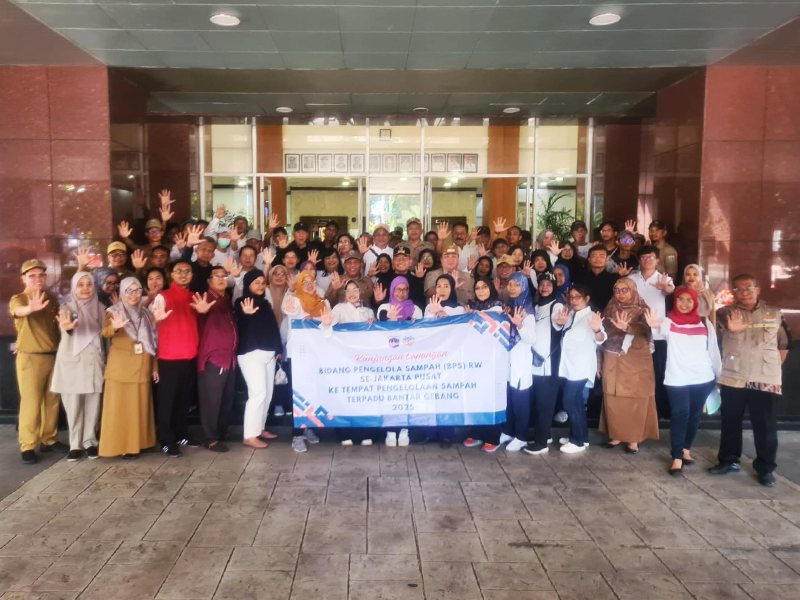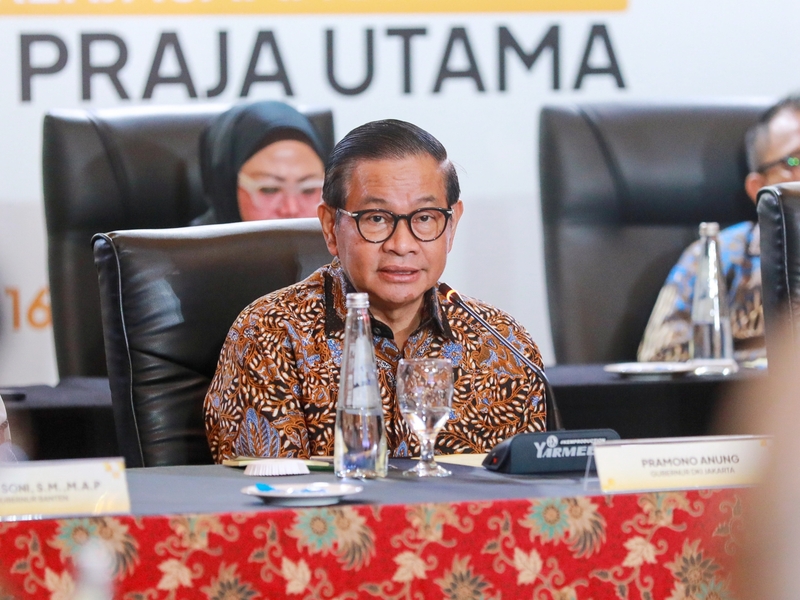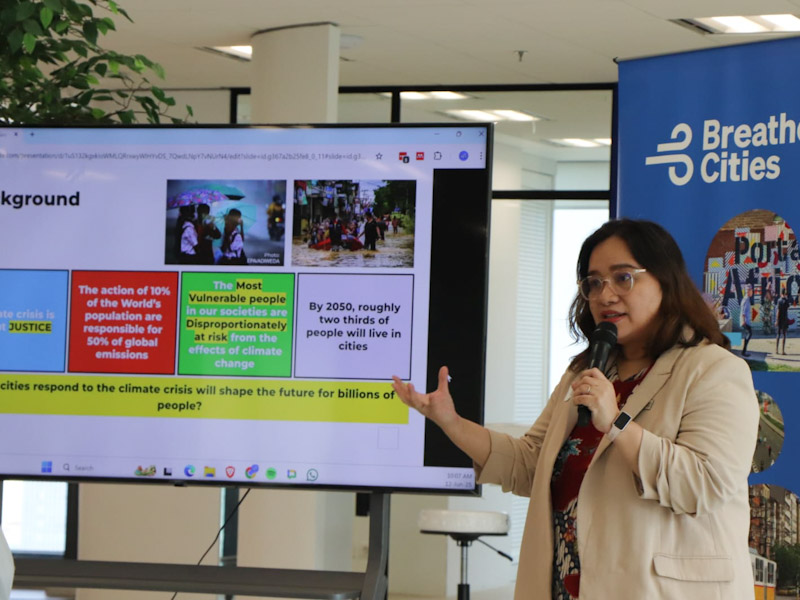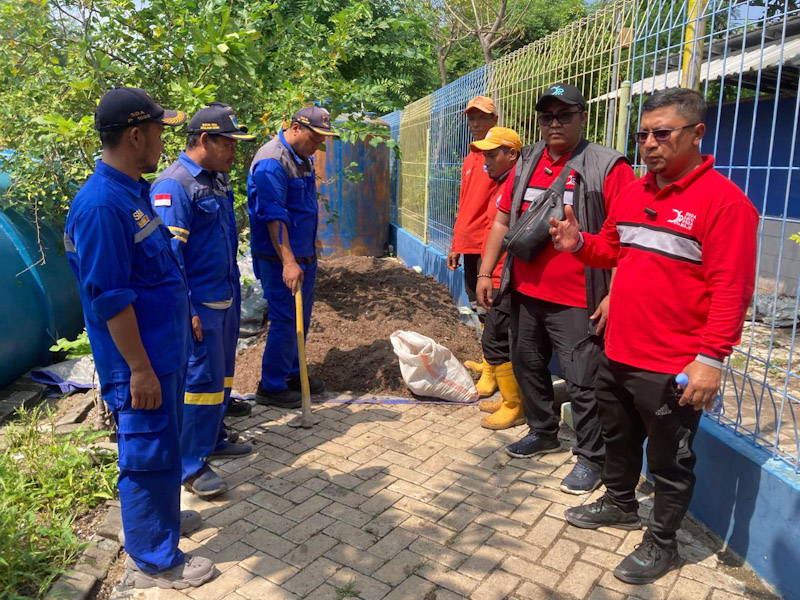Collaborative Waste Management Pilot Empowers Urban Villages in Jakarta
Reported by Aldi Geri Lumban Tobing | Translated by Maria Inggita
The Jakarta Provincial Government through Environment Agency continues to strengthen sustainable, area-based waste management efforts by implementing a Collaborative Waste Management Pilot Project in six selected urban villages across Jakarta.
"...to create self-sufficient and sustainable urban villages in managing their waste,"
Jakarta Environment Agency Head, Asep Kuswanto, stated this concrete action is reinforced through the Large-Scale Social Collaboration Forum (KSBB) in the Waste Management cluster.
He explained that KSBB aims to create a self-sufficient waste management system through synergy among stakeholders, including government, industry, startups, academics, civil society organizations, and communities.
N. Jakarta Has 52 Organic Processing CentersHe revealed that his agency wants to integrate various contributions in this pilot project, such as infrastructure, technology, education, training, and assistance within an area-based waste management system.
"This collaboration is a strategic step to create self-sufficient and sustainable urban villages in managing their waste," he asserted, on Wednesday (6/25).
He named the six target urban villages for the pilot projects are RW 07 Johar Baru Urban Village (Central Jakarta), RW 04 Pegangsaan Dua Urban Village (North Jakarta), RW 05 Pengadungan Urban Village (West Jakarta), RW 07 Ulujami Urban Village (South Jakarta), RW 17 Klender Urban Village (East Jakarta), and Sancang Island in Pari Island Urban Village (Thousand Islands).
"CSR program potential from industry and startups as well as assistance from CSOs and academics will certainly form an effective collaboration to succeed in this pilot project," he said.
He mentioned the outputs of this collaboration include socialization, education, training, and assistance to all households in the pilot RW locations, along with the provisions of infrastructure and supporting facilities. Project achievements, such as increased numbers of households sorting waste and reduced waste volume, will serve as key indicators of the pilot project's success.
"LH Agency will conduct strict monitoring and evaluation during the first year. It is hoped that this pilot project will become a model that can be replicated in other 261 urban villages as a good practice to realize a sustainable waste management," he said.
Jakarta Governor’s Special Staff for Development and Urban Planning, Nirwono Joga, stated that the concrete action through the Collaborative Waste Management Pilot Project aligns with Jakarta’s vision to become a top 50 global city by 2029. One of the key indicators is integrated and sustainable waste management.
“Jakarta produces around 8,000 tons of waste per day. If divided among the 267 urban villages, each would need to reduce about 29.96 tons per day. This can be achieved if each village prioritizes innovation and collaboration in waste management,” he mentioned.
He explained that Jakarta can classify urban villages into three categories based on their waste reduction performance: the 'waste-free' category, which significantly reduces waste; the 'partially waste-free' category, which includes areas that are still working toward becoming low-waste; and the 'not yet waste-free' category, which refers to areas that are still struggling with waste reduction.
He added that urban village in the 'waste-free' category can serve as learning centers for others, while those in the 'not yet waste-free' category will be prioritized for support from the Jakarta Environment Agency.
"If this target is met across 267 villages, a sustainable, self-sufficient waste management system at the local level can be established," he conveyed.

